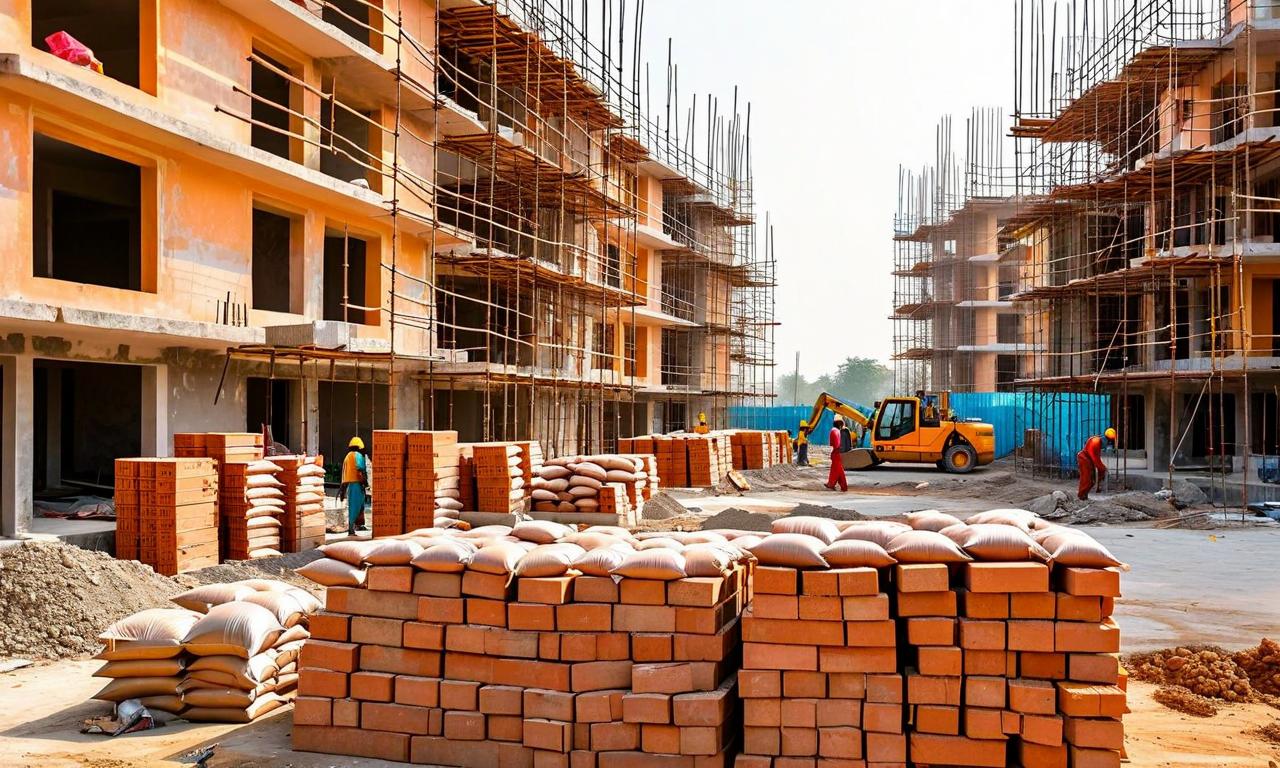GST Rate Cuts on Construction Materials Set to Boost Mid-Income Housing Segment
India's housing market is expected to undergo significant changes following GST rate reductions on key construction materials. Cement GST rates have been reduced from 28% to 18%, while materials like marble, granite, and bricks now attract 5% GST, down from 12%. The mid-income housing segment is anticipated to benefit the most, with potential construction cost reductions of 3-5% for developers. These reforms are likely to improve project viability, encourage new launches, and strengthen market sentiment in key regions. The full impact of these changes is expected to materialize over the next 2-3 quarters.

*this image is generated using AI for illustrative purposes only.
India's housing market is poised for significant changes following the recent GST rate reductions on key construction materials. The government has slashed GST rates on cement from 28% to 18%, while materials like marble, granite, and bricks now attract a 5% GST rate, down from the previous 12%.
Impact on Different Housing Segments
BPTP CEO Manik Malik suggests that these tax reforms will have varying effects across different housing segments:
- Mid-Income Segment: Expected to benefit the most due to improved affordability and reduced costs.
- Premium Housing: Likely to see indirect benefits through enhanced buyer confidence and increased market liquidity.
Cost Implications for Developers
The GST rate cuts are anticipated to bring about significant cost reductions for developers:
- Developers procuring materials directly could see construction cost reductions ranging from 3% to 5%.
- Those under fixed-rate contracts may experience minimal immediate impact.
Market Dynamics and Future Outlook
The reforms are expected to reshape the real estate landscape in several ways:
- Project Viability: Improved cost structures could enhance the feasibility of new and ongoing projects.
- New Launches: Developers may be encouraged to initiate more projects, particularly in the mid-income segment.
- Market Sentiment: Key regions like NCR, Gurugram, Faridabad, and Noida are likely to see strengthened market sentiment.
Timeline for Impact
The full effect of these GST rate cuts may take some time to materialize:
- New tender negotiations reflecting revised GST rates are expected to commence over the next 2-3 quarters.
- The mid-income housing segment, where affordability and cost sensitivity are crucial factors, is likely to see the most pronounced benefits.
These GST reforms represent a significant move by the government to stimulate the real estate sector, with potential ripple effects across the entire housing market. As the industry adapts to these changes, both developers and homebuyers will be keenly watching how these tax cuts translate into tangible benefits in the coming months.



































